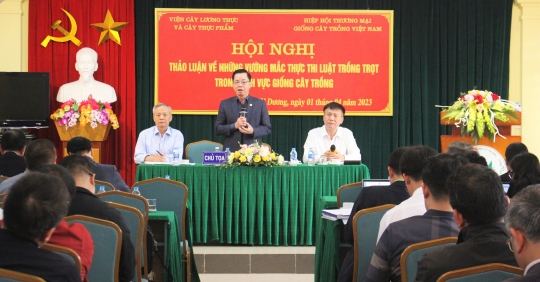On April 1, the Vietnam Seed Trade Association held a conference in Hai Duong to discuss problems in the implementation of the Law on Cultivation in the Field of Plant Varieties.
The conference was organized to listen, identify problems and find consensus between state administrations and companies in the implementation of legal regulations related to seed production and business.
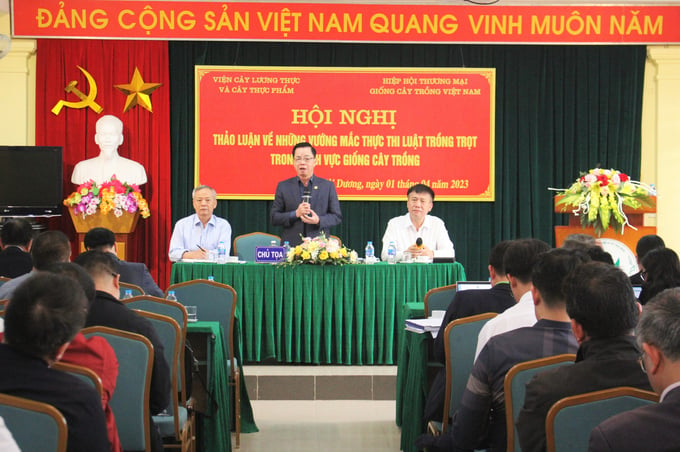
The conference discussed problems in the implementation of the cultivation law. Picture: Trung Quan.
Further explanations for the extension of the edition
Nguyen Trong Khanh, director of the Institute of Food Crops and Food Plants (Vietnam Academy of Agricultural Sciences), said the Law on Cultivation is seen as a new achievement in the administration and enforcement of the Law on Plant Varieties. However, there are still some points that need more specific and detailed instructions to ensure transparency and avoid each subject understanding something different. Since then, conflicts can easily arise in the community of seed production and trading companies.
Specifically, Section 13 (4) of the Cultivation Act states: “PULLlevel work QThe decision on the recognition of the marketing of the plant variety is made at the same time as the granting of the plant variety BPlant variety protection when an organization or individual registering the recognition of the marketing of a plant variety applies for and meets the conditions for plant variety protection under the provisions of the Intellectual Property Law.“.
According to Mr. Khanh, this only refers to the recognition of the spread of new varieties accompanied by a protection certificate. In reality, however, 2 objects remain, namely varieties with the end of the circulation period with a protection certificate and a variety without a protection license to be extended for marketing. The question is how to deal with these two breeds.
If these three cases are treated equally, it happens that the variety that is put into circulation but does not have a protection certificate is the same as the variety that is put into circulation but has a protection certificate. Therefore, the value of granting a protective title under the Intellectual Property Code is not valid.
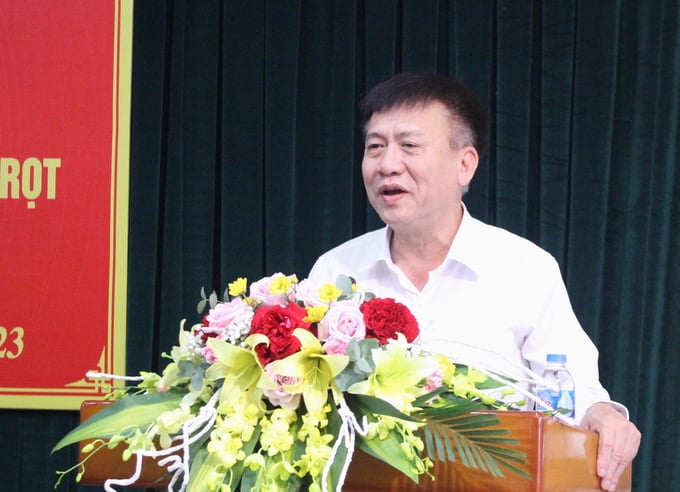
dr Nguyen Trong Khanh, director of the Institute of Food Crops and Food Plants, said there is a need to clarify the content of plant variety approval. Picture: Trung Quan.
Also according to Mr. Khanh, Section 1, Section 2, Article 31 sets out the rights and obligations of organizations and individuals whose names are registered for making decisions on the recognition of traffic or the self-declaration of traffic of plant varieties. Where in section 1 only 1 subject is mentioned (organization, individual registered to issue a decision on acknowledgment of dissemination or self-declaration of dissemination) but in section 2 2 subjects (organization, individual) are the person whose name is the registrant for the decision on the marketing recognition or the organization or individual authorized to recognize the marketing of the plant variety). Thus, rights and obligations are not compatible here.
In addition, approval for plant varieties without a protective license is subject to a fee or not (referred to as a fee or fee) or for companies to exchange freely between themselves. In addition, when an entity that is the same author authorizes another entity to request an extension of the distribution credit, it should be made clear that both entities have an interest in such permission according to the regulations, or that the subjects have different interests .
Confused about special recognition
Mr. Mai Thanh Giang, Director of Thai Binh Plant Protection and Cultivation Sub-Department, wondered: Based on the provisions of Section 2, Article 13 of the Law on Cultivation, in the past period, the Yellow Jackfruit Conservation and Development Cooperative Ha Giang, Ha Giang Township (Dong Hung, Thai Binh) has completed the self-declaration of traffic for the native yellow jackfruit variety. When the ministry sent a document to the Ministry of Crop Production, the ministry had a written reply to the Ministry of Agriculture and Rural Development of Thai Binh and the cooperative.
The document states that the native yellow jackfruit in Thai Binh has existed in production for a long time, this jackfruit variety has not yet made a decision on cultivar recognition, nor is its name included in the list of plant varieties used for production and cultivation Trade approved are Thailand Vietnam. Therefore, the cooperative has contacted the Ministry of Agriculture and Rural Development to examine and carry out the procedures for the recognition of the exceptional traffic according to the provisions of Section 1, Article 16.
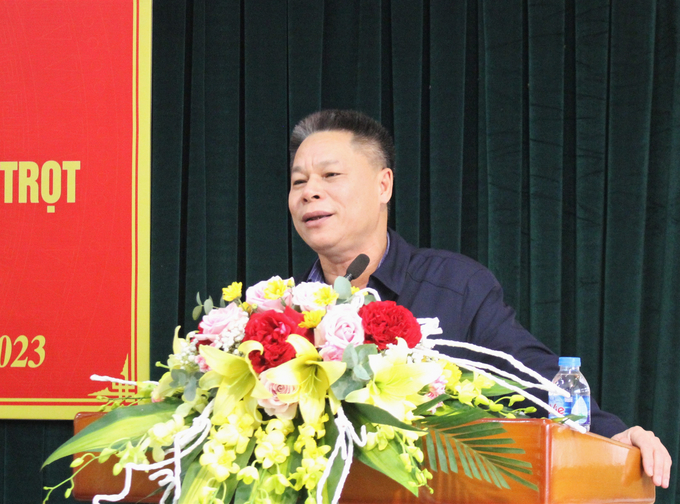
Mr. Mai Thanh Giang, Director of Plant Protection and Cultivation Sub-department of Thai Binh, expressed concerns about the special recognition of plant varieties. Picture: Trung Quan.
According to Mr Giang, if this variety of yellow jackfruit is not in the list of plant varieties according to the Department of Crop Production document, if it is recognized as exceptional, the owner of the variety can be understood as Thai Binh Department of Agriculture and Rural Development. So can the units do business?
Also, when entering the variety list, there will be many production and business units. The question is that if there is an entity that produces or trades in poor quality seeds, affecting the production, the competent authority in charge of inspection and inspection will ask the owner to sanction. Therefore, when the owner is the Ministry of Agriculture and Rural Development, when recognizing privileges, the rights and obligations should be more clearly defined.
Should no longer wear “eyeballs” on pawns’ necks
Mr. Ha Huy Hoang, deputy director of Bac Giang Seed Joint Stock Company, said that the expansion of the recognition of the circulation of invisible varieties has brought the varieties that are “released” in the company into a monopoly. The units that do not renew may not be manufactured, traded, or require approval and permission from the subject who performed the orbit extension recertification.
This leads to the fact that the company has been producing and distributing a variety for a long time, now has a variety in bags and is about to put it into production, but the unit extending the traffic recognition is not the same breed, the consequences will be enormous be. Both companies and people have to suffer. The companies have gone out of business, if they want to do business and produce they have to make a fee agreement with the entity that has extended recognition of the condition (this was done with a large amount).
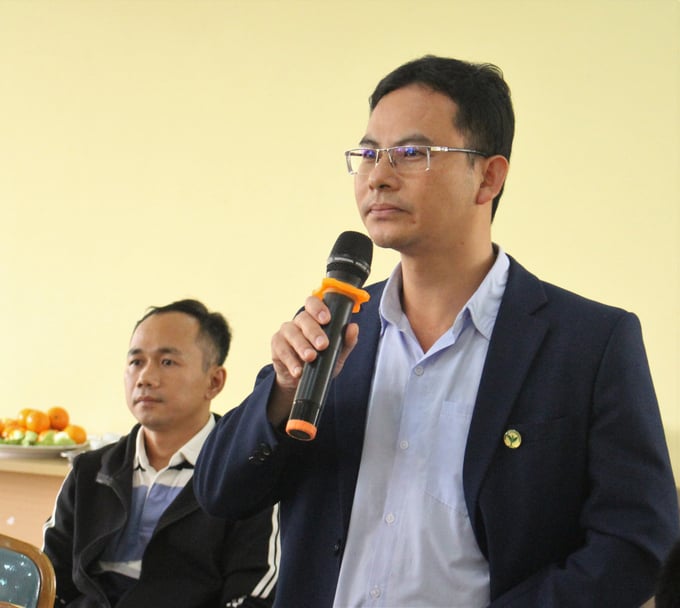
Mr. Ha Huy Hoang, deputy director of Bac Giang Seed Joint Stock Company, said that expanding the recognition of the spread of varieties would create a monopoly and increase the selling price of varieties, which would affect farmers. Picture: Trung Quan.
At this point, the company must increase the price of seeds to offset the cost. The biggest sufferers are therefore the farmers, while in recent years farmers have suffered from “a multifaceted neck” with rising commodity prices: The risk of people leaving their fields is very high.
Now that the 2023 harvest is approaching, unless an agreement has been reached for the unit to extend the cultivar’s recognition and re-circulation, the entities holding the seed in the business will not have valid paperwork. When brought into the locality, the control and control authorities are disadvantaged for companies, insofar as they are to be sanctioned according to the ordinance. Therefore, it is recommended that the Department of Crop Production provide specific guidance that companies can remove while things are still unclear.
There is no socialization, the law must be strictly enforced
Ms. Tran Thi Hong, general manager of Quang Ninh Seed Joint Stock Company, said the Law on Cultivation is an effective tool to help seed companies participate in international integration. Breeders have responsibilities in addition to their rights and are responsible for the quality of this strain.
Other units can produce seeds but may not have enough traits like the original race created by the author. Therefore, the Cultivation Act helps to affirm the truth that if only standard varieties are produced and the traits are preserved, the variety will surely survive in production.
According to Ms. Hong, breeders must have merit, but at the same time they must retain responsibility for production and society, which is to preserve the breed’s characteristics. Therefore, it cannot be the same race that each place chooses to create a style. The old method of free mining is no longer appropriate, so companies must take the lead to change this.
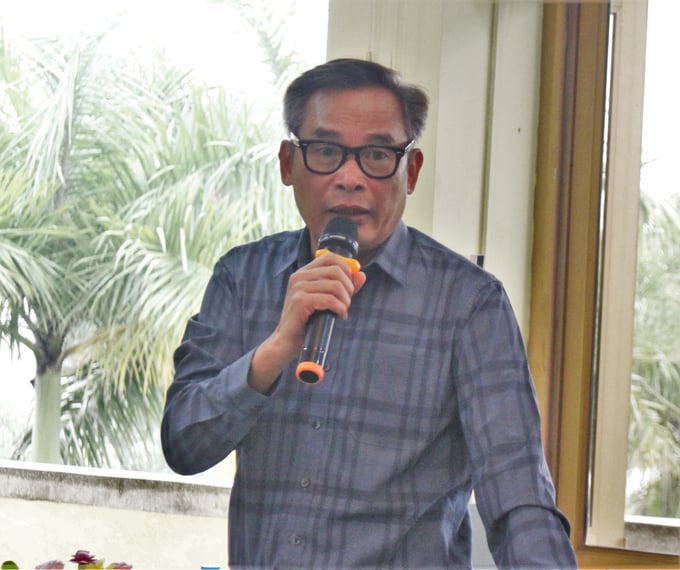
Mr. Nguyen Nhu Cuong, Director of Crop Production Department, reiterated that there is no such thing as a socialized variety. Picture: Trung Quan.
Mr. Nguyen Nhu Cuong, Director of Plant Production Department, confirmed that there is no document stating that there are socialized varieties. In the past, when the legal documents were not clear, companies freely exploited and used seeds. However, it is time for subjects to be clear about where this breed came from, who the breeder is, how much effort and expense they need to expend to create the breed. We have to respect that.
“Respect copyrights but do not grant any entity or individual exclusive rights to breed. Companies need to have an overall view of their role towards society, people and business, rather than looking at the issue from the perspective of their own interests,” stressed Mr. Nguyen Nhu Cuong.

